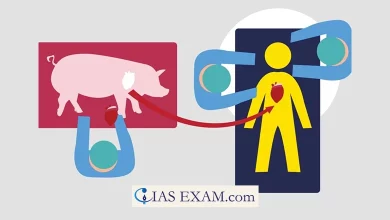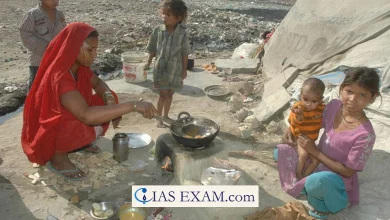
Context
The report has pointed out the rising number of cancer cases in India, which has earned the country the title of the “cancer capital of the world”.
Details on news
- India is witnessing a rapid increase in cancer cases, positioning it as the potential “cancer capital of the world.” This alarming trend is highlighted in the annual Health of Nation report by Apollo Hospitals.
- Burden of Non-Communicable Diseases: NCD which accounts for about 63% of the deaths in India, stands among the top causes of health-related mortality in India. Not only that, but these diseases are not only a health concern but they also pose a serious economic burden, with staggering projections of $3.55 T coin of future lost output by 2030.
- Cancer Prevalence and Age of Onset: India has a mostly young age population under cancer diagnosis in comparison to the western world. For example, the mean age of breast cancer diagnosis in India is 52 years while in the US and Europe it is 63 years. Along with this lung cancer diagnosis in India is expected at a mean age of 59 years as compared to 70 years in westward nations.
- Screening and Early Detection: However, the picture only goes to show the trend, cancer screening rates in India are still a matter of concern. It is shown in the survey reports that only 2% of women got their breast cancer screened and just 1% women received cervical cancer screening. Their rates are a few 10s of dollars which is equivalent to almost zero compared with huge numbers in America or the UK.
- Youth and Mental Health: The report additionally puts a spotlight on mental health, as it states that, out of 5,000 individuals consulted, the percentage of those having depression is about 10%. The percentage is as high as has been recorded for the 18-25 age group where one-fifth of the people in the survey reported being depressed.
- The Rise of Colon and Prostate Cancer: Yet there has been an extremely significant rise in the incidences of colon cancer among the youth with 30% of the patients being under 50 years in age. Prostate cancer is responsible for 3% of all types of cancers in India and approximately 33,000-42,000 new cases are likely to be identified each year as per the conservative estimates. As a consequence, the number is projected to further increase to two times by 2040.
Cancer
- Cancer is the abnormal growth of cells and can occur in any part of the body.
- It can be either non-cancerous (benign) or cancerous (malignant).
- The causes of cancer include genetic factors, exposure to carcinogens, unhealthy lifestyle choices, and infections.
- Common types of cancer include lung, breast, colorectal, prostate, skin, and stomach cancer.
- Symptoms of cancer include weight loss, fatigue, changes in bowel or bladder habits, bleeding or discharge, and the presence of lumps or thickening in the body.
- Treatment options for cancer include surgery, radiation therapy, chemotherapy, immunotherapy, Nanomedicines, hormone therapy, targeted therapy, and combination approaches.
- Supportive care measures for cancer patients include pain management, nutritional support, and psychological counselling.
What are the Causes behind the Rise of Cancer Cases in India?
- Smoking and alcohol use: Over 37% of cancer deaths in India in 2019 due to smoking, alcohol, and high BMI.
- Obesity: Increased likelihood of breast, colorectal, pancreatic, and kidney cancers.
- Unhealthy Diet: High fat, low fibre diet, processed or red meats, excess fats, proteins, and calories.
- Stress: Chronic stress can increase cancer risk. High depression rates in the 18-25 age group.
- Poor Oral Hygiene: Chronic inflammation and infections linked to oral cancers.
- Occupational and Environmental Exposures: Exposure to chemicals and toxins in workplaces or environment.
- Infections: HPV, hepatitis B and C viruses, and Helicobacter pylori linked to specific cancers.
- Other Factors: Lack of Physical Activity and Excessive Sun Exposure.
Way Forward
- Implement harmonised clinical protocols across cancer care.
- Reduce tax burden on cancer medicines for affordability.
- Invest in research and development for innovative cancer treatments.
- Implement initiatives like pooled procurement strategies, comprehensive healthcare worker training, and replication of successful models.
- Streamline the regulatory environment for cancer drugs and ensure timely access to innovative therapies.
- Promote public awareness campaigns about early detection, lifestyle factors, and cancer myths.
- Use AI-based risk assessment models for early cancer screening.
- Collaborate with pharmaceutical companies and healthcare providers for improved diagnostics, training, and comprehensive cancer centres.
- Establish patient assistance programs for financial support.
Source: The Economics Times
Also read: Free cancer care alone won’t help India fight cancer
UPSC Mains Practice Question
Q.Discuss the global burden of cancer, highlighting the key factors contributing to its prevalence and the challenges in its prevention and treatment. Propose comprehensive strategies that governments and healthcare organisations can implement to address the growing incidence of cancer and improve patient outcomes.





.png)



